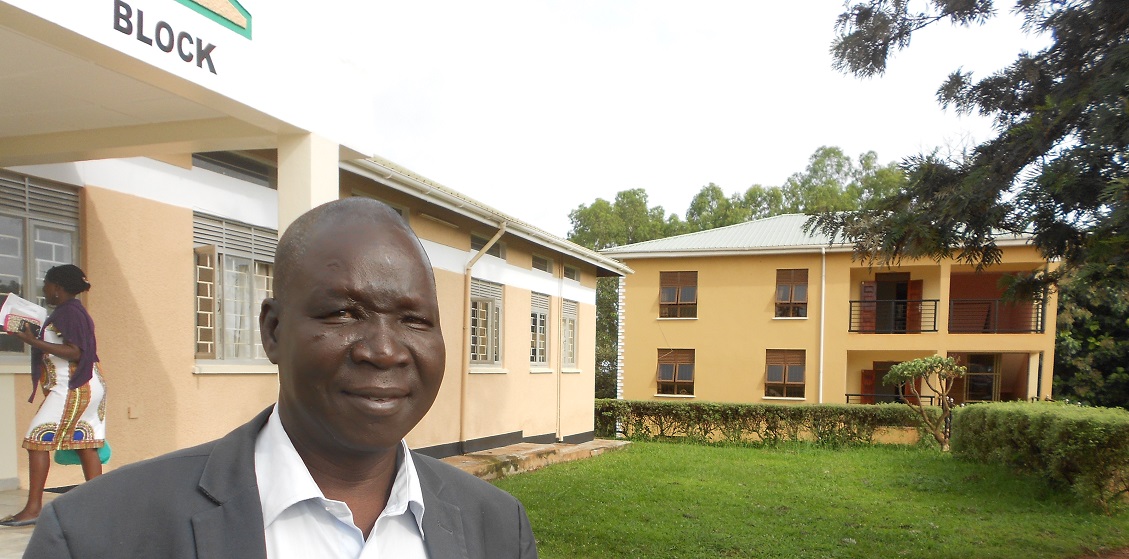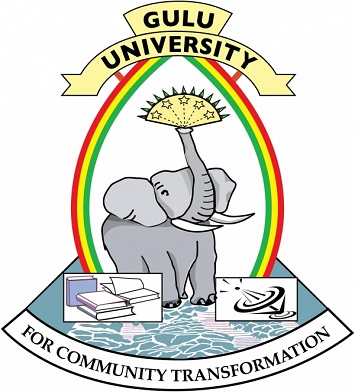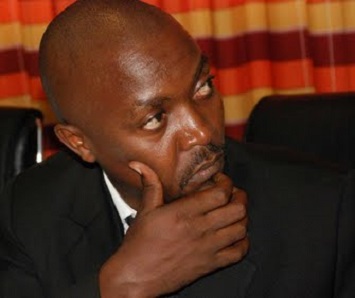Asaf Adebua in 2017 started to study for his PhD at Gulu University with support from the Building Stronger Universities (BSU) project of DANIDA. The choice of his research proposal, The Contributions of Institutions of Higher Learning to Post-war Community Transformation: The Case of Gulu University in Gulu District, meant that he was actually investigating the relevance of his university to the community it targets to transform, going by the university’s motto, For Community Transformation.
In 2018 Adebua was given more responsibility and it was hardly a promotion. As a consequence, he would be too occupied to find time for his PhD. Now that he has been relieved of that extra responsibility, having handed over the office of the University Secretary on September 1, 2020, after acting for two years, Adebua will find more time to concentrate on his PhD. He hopes that his study will lead to a stronger bond between Gulu University and the community.
Adebua’s substantive position is Director of Planning and Development, for ten years now. He was asked to act as the University Secretary following the abrupt resignation of his colleague who previously occupied that office. Before joining Gulu, Adebua had worked as the Deputy University Secretary at Kyambogo in Kampala so it was deemed he had the necessary experience to do the job.
“I am very busy here. This work, assigning it to me, has been a disservice in terms of my PhD work. You find heaps are here up to late evening. I report to office at 8:00am and I leave at 8:00pm. I get home; trying to do my work of the PhD I find myself sleepy. I try to write but I can’t write; read, I can’t. So, of late I am doing very little,” he told me during an interview from his quiet office at Gulu University in October 2019.
Adebua is specifically looking at the contribution of Gulu University to community transformation through agricultural education and training. Over 70 percent of Uganda’s workforce is engaged in agriculture and therefore transformation of any rural community in the country would most likely be based on agriculture.
“The reason why I picked on that is that the motto of the university is ‘For community transformation.’ So, what is it that is being done? Is the community being transformed, what are the indicators that whatever changes are happening in the community are contributed by the university, does the community feel the presence of the university, does the university feel it that we are contributing?” He tells me.
Adebua may still have a long way to go with his research but he already has some interesting findings. For example, he finds that the infrastructure around the university is changing but there has been little documentation of what is going on.
“It is only of now that the Faculty of Agriculture [and Environment] has started to document what is happening. Otherwise, it was difficult to see what is it that the university is doing in transforming the community,” Adebua states. “And if you talk to people, they will tell you that we have done this. At the same time, as you move around, you can see that change is happening in the community close to the university. Very many shops have been developed around; hotels, restaurants, bars. All these have a linkage to the existence of the university. Hitherto they were not there.”
There are direct and indirect benefits. An example of the indirect benefits is that people in the region farm to tap into the growing population in and around the university campus. Some factories have also started near the university, including two that produce and package drinking water.
The other benefit for the community is the opportunity to study at the university. “The knowledge they pick from here is also shared with the population to develop themselves,” Adebua says. As a direct engagement, the Faculty of Agriculture and Environment runs a model through which students conduct their trainings and research directly on people’s farms within the community, otherwise known as the Student Centered Outreach (S-C-O) model.
“We don’t have farms for the university. The farm for the university is the farmers’ farm out there,” he tells me. “Students work with farmers on their land. They learn from each other. What the students have learned in the class is useful to them [farmers]. Their reports indicate that farmers who use the old traditional approaches stand a lesser chance of benefiting than those who adopt the methods which they [students] introduce to them. The students also learn certain things from the farmers, based on their experience. It is a two way.”
This model has already won Gulu admirers on the African continent. It has attracted students from Kenya, Zambia, Tanzania and Malawi, according to Adebua.
Gulu’s approach to agricultural training also led to winning an award from the MasterCard Foundation and the Regional Universities Forum for Capacity Building in Agriculture (RUFORUM). This will directly benefit 220 students (undergraduate and postgraduate) of Gulu and Kenya’s Egerton University.
Lessons from Denmark
Adebua has visited Aalborg University twice. There he learnt how to commit oneself to reading. He was also introduced to the qualitative research method.
“The first visit was absolutely fantastic. I gained a lot from first of all the library. I was overwhelmed with the resources. Anything I needed I got. In the past I was only doing quantitative methods. My first degree was in economics, then the second one also in economics. When I went to Denmark it is the first time I learned the qualitative approach to research. And I developed interest in it. I am now using it,” he tells me.
“Another thing is literature review. It is from there that I really picked the true approach to literature review. The understanding and the linking, engaging yourself: What does this mean, what did the other person do, what did he find, how different is it from others, what do I make of it, is there something which is missing? All these I picked from there. There were a lot of presentations I used to attend so I
picked up research skills,” he adds.
His second visit, he recalls, was not as productive as the first. The timing was imperfect. “I was largely on my own,” he says. “The people I was assigned to were so busy. We would normally meet via Skype. And then we meet face to face when we are presenting. The assumption for them was that I was already vast with these [computer coding] methods.”
Research Expectations
Adebua expects his research to bring out the linkage between Gulu University and the community, especially on how they benefit each other. He also expects to find gaps between the two. The research should therefore help in improving the relationship between the university and the community. At the end of the day, he hopes to see replicated at Gulu what he saw at Aalborg.
“Aalborg started as a technical institute, a small thing, as part of the city. It is now spread in the city. There is a very important approach which is being used there – Problem Based Learning (PBL). It integrates the community into the university, or the university into the community. It is excellent due to the fact that you see university students working with the community. They identify problems and look for solutions with the community, and the community is changing. This is what Gulu University is moving towards,” he says.
Sharing research findings
Adebua has been sharing parts of his research through workshops. He hopes, when he is finally done with the PhD, to return to the community and share his findings.
“I have been telling people during my data collection ‘please when I finish this, if you find that I have not communicated to you come and knock. Challenge me’,” he says. He also hopes to share his PhD finding with within and outside Uganda.
Towards better research cooperation
Adebua feels his second trip to Denmark could have been much better, but for inadequate arrangements.
“When students are to travel for a study stay like the kind I went for there should be a predetermined role of the mentors. They need to be prepared. The mentors assigned to us did not have preparation. We could not fit in their timetable. They were set for travels so the time they would have for us was very little,” he says.
Adebua also thinks it important to prepare students before they travel to Denmark especially about culture, including the academic culture in Denmark.
“Students here must be prepared by the organizers that when you get there this is how things are. And this is what happens there,” he says. ““Even the weather itself alone impacts a lot you.”
Africa in the West
As we conclude our conversation Adebua adds: “People there also need to know that people coming from Africa have their expectations and weaknesses. Their experience is a bit different. There’s a big difference between the cultural setups and the practices. Do not assume they already know. That is what I think is important. It will help the collaboration. It will help the partnership.”
William Odinga Balikuddembe is a science journalist based in Kampala, Uganda








